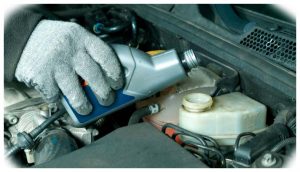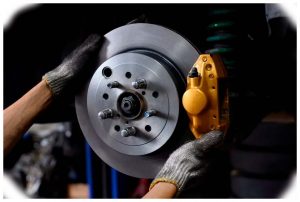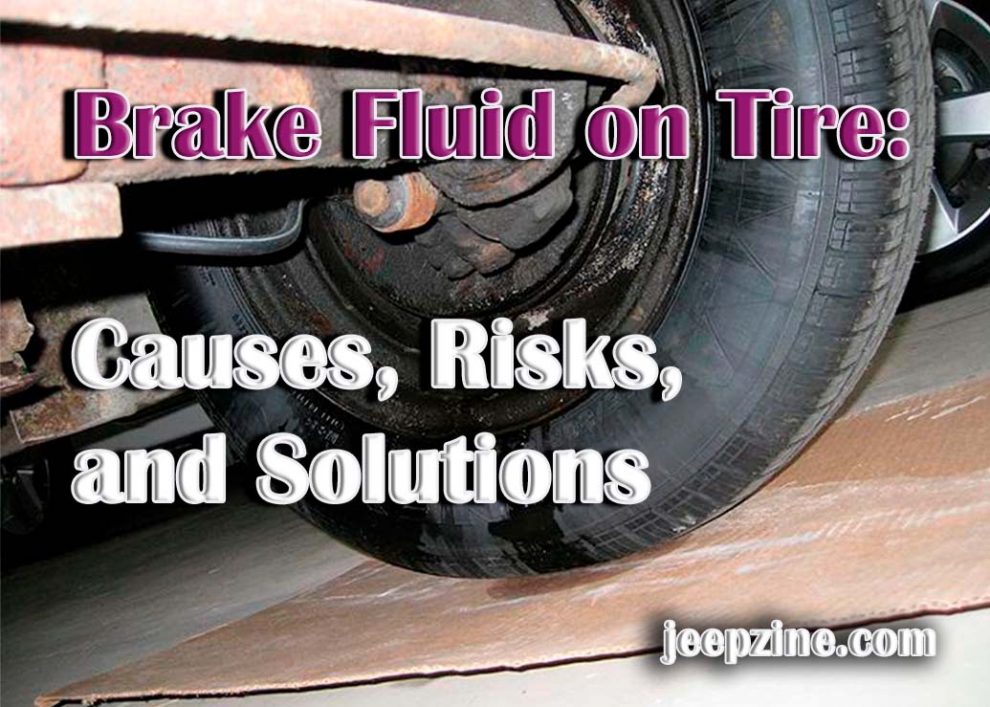Brake fluid is a viscous liquid used to transfer pressure to the braking system for it to work correctly. It works by pushing a plunger in the master cylinder, forcing brake pads against the rotors of your car’s wheels. This creates friction, which slows down and stops your vehicle. When brake fluid ends up on your tires, it can cause serious damage and even put your safety at risk. In this article, you’ll learn what causes brake fluid to end up on tires, potential risks associated with it, and how you can clean it off safely and prevent future leaks.
Causes of Brake Fluid on Tires

- Worn seals or gaskets in master cylinders or wheel cylinders
- Damaged hoses
- Loose fittings
- Corrosion from rust accumulation inside the hydraulic components of the system
If you notice any small pools of wetness under your vehicle after parking it for an extended period of time, chances are that brake fluid has leaked onto the ground near one or more tires.
Symptoms of a brake fluid leak include a low brake pedal, an illuminated brake warning light, and soft brakes that require more pressure to stop the vehicle. To identify the location of a leak, you should look for dampness around the master cylinder or wheel cylinders, as well as any loose fittings or hoses that may be the source of the problem.
Risks Associated with Brake Fluid on Tires
Driving with brake fluid on tires can cause serious issues that put your safety at risk. The fluid can affect braking performance by reducing friction between the brakes and tires, which means it will take longer for your vehicle to come to a stop. It also risks corroding or damaging other parts of your braking system if left unchecked. Additionally, brake fluid is highly corrosive and can damage rubber components such as tires in certain cases if it accumulates over time.
Cleaning Brake Fluid Off Tires
If you notice any wet areas caused by leaking brake fluid on your tires, it’s important to address them immediately to prevent any damage. The best way to clean off brake fluid from tires is by using a high-quality cleaning solution designed specifically for this purpose. Start by spraying the solution onto the affected area and using a soft cloth or sponge to rub it in. Wipe off any excess solution and then rinse the area with clean water. Allow the area to dry completely before driving your vehicle again.
It’s also important to note that brake fluid is highly flammable, so it’s best to avoid using any type of heat sources such as an open flame or a hair dryer when cleaning it up.
Preventing Brake Fluid Leaks

Conclusion
Brake fluid on tires is unsightly and can also put your safety at risk due to its corrosive nature and potential for reducing braking performance. It’s important to identify the source of brake fluid leaks, clean them up safely, and take the necessary steps to prevent them from happening. Regularly inspecting and maintaining your vehicle’s brake system is key to keeping your brakes working properly and ensuring your safety on the road.





Add Comment